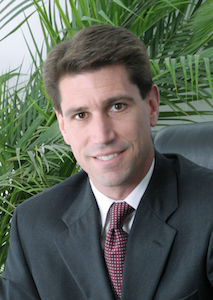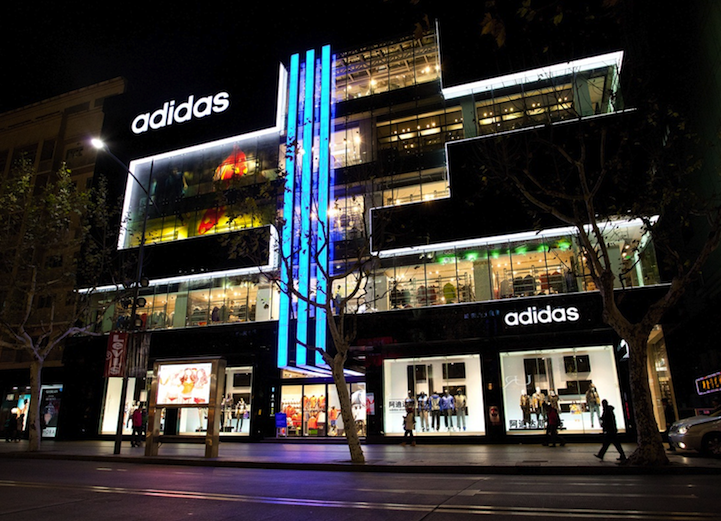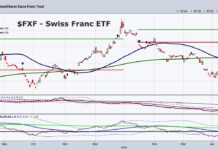By Andrew Nyquist
Dynamic, diverse, and driven are a few words that come to mind when attempting to describe Erick Haskell, COO of Greater China for the Adidas Group. But, truth is, even these bold adjectives do not do justice nor come close to painting the collective picture of this accomplished, well-traveled family man. Furthermore, his unique approach to life and business pursuits has led to success at each of his domestic and overseas stops.

Mr. Haskell best summarized his drive and approach to life over the past 30 years, recalling a quote from his fourth grade teacher, Mr. Christensen:
“You can never get back a wasted moment.”
And his life and career certainly embody this simple, yet profound, motto.
Born in Silicon Valley, Erick Haskell grew up in Southern California. After a quick return to Northern California and a stop in Omaha, he went to high school near Denver. He attended George Washington University for his undergrad, George Mason University for a Master’s in International Trade and Finance, and The University of Chicago for a Master’s in Business Administration. His career has seen stops in Washington, Minneapolis, San Juan, Miami, San Francisco, Phoenix, Tianjin, and Shanghai. He has spent much of his career cultivating and furthering business interests across the globe, and more specifically in Latin America and the Far East (China).
Oh, and did I mention that he also runs marathons. So apropos. In fact he recently ran his personal best in Beijing (2:59, but who’s counting), and he is training for the 2012 Boston marathon. From stocking shelves to powering start-up companies to managing business lines and serving as CFO or COO for three companies, Erick has a wealth of experience and diversity.
And the story isn’t over. Not even close. Erick is moving forward at full throttle, not wanting to waste a single moment.
In the interview below, Erick Haskell and I discuss business and life in China, career diversity, and work abroad, amongst other topics. Enjoy.
— — — — — — — — — — — — — — — — — — — — — — — — — — —
Andrew Nyquist: What did you do for fun growing up? And can you share a few memories?
Erick Haskell: As a kid, all I cared about was sports. Although I played virtually every sport at some point, my real love was baseball. Growing up in Southern California, we could play year around and would do so virtually every day until the sun went down. I was the captain of my high school baseball team in Colorado, where we nearly won a state championship.
Andrew: Do you have a favorite sports team(s)?
Erick: My favorite sports teams are a reflection of the many moves that I have done over the years. I am a big supporter of the Denver Broncos, Chicago Bulls, and San Francisco Giants.
Andrew: What was your first job in high school? And first job out of college?
Erick: Perhaps presaging my future career in retail and consumer goods, my first job in high school was stocking the shelves in the toy department at the Target in Littleton, Colorado.
Out of college, I was very fortunate to join an innovative start-up company called Seed Capital Development Fund, which was one of the pioneers in microfinance. Although microfinance is relatively well recognized now, it was virtually unheard of in the early 1990’s. We specialized in making investments in financial institutions in Latin America that in turn lent money to poor entrepreneurs. It served as a great foundation for the rest of my career.
Andrew: When did you decide on your current profession or arena of interest, and how did that come about?
Erick: Ever since a month-long backpacking trip across Europe on the trains following my high school graduation, I’ve had the desire to live and work overseas. I enjoy traveling, seeing new places, and learning about new cultures.
I’ve been lucky that my career has allowed me to travel to dozens of countries in virtually every part of the world. To be honest, corporate finance bores me to tears. During nearly 10 years as a CFO for three companies, it has been working overseas that has made the work interesting and exciting.

Andrew: What drew you to Adidas and further, what drew you to the opportunity in China?
Erick: I landed in China quite by accident. Much of the first half of my career was spent in Latin America. I had really spent very little time in Asia. However, a former boss of mine was hired to be CEO of a large Chinese retail company and he asked me to join the company as CFO. This was in late 2004 and the buzz about an awakening China was getting very loud so I jumped at the opportunity. Several years later the company was successfully sold to an even larger state owned conglomerate.
Around this time I was being recruited to become CFO of Adidas Greater China. After spending a few years in China, I knew that the brand was extremely strong in the market. As a lifelong athlete and sports fan, I was drawn to the opportunity of joining a world class sports company. Also, this was in early 2007 and Adidas had already secured the right to be the exclusive sporting goods sponsor of the 2008 Olympic Games in Beijing. It was bound to be an exciting ride.
Andrew: How would you describe Adidas corporate culture?
Erick: As a company that strives to be the leading sports brand in the world, you can imagine that the corporate culture is driven by young, energetic people who like to win. I have been impressed by the pride that people take in working for a company that contributes to the success of so many world-class athletes and sports teams. Although it may sound cliché, a passion for sport really does permeate the culture at Adidas.
Although the company is headquartered in Germany and has a rich German history extending back nearly a century, the company is truly global in its reach and its corporate culture. The headquarters team in Germany, as well as the management of subsidiaries such as China, is incredibly diverse. This adds to the appeal of the corporate culture at Adidas.
Andrew: Are you seeing more Westerners working and doing business in China, and further do you see this trend continuing?
Erick: Absolutely. As Western companies continue to enter China to take advantage of the massive opportunities, you see more westerners working here on either short term or long term assignments. Also, what may have been somewhat of a hardship posting several years ago has now become a very desirable assignment for many Westerners. Compared to when I arrived seven years ago, the amenities available to Western expats in China have improved greatly.
Andrew: China has been pulling in the credit reigns over the past year or two in an attempt to cool the economy. Has this affected consumer spending or trends? And how, if at all, has this impacted Adidas?
Erick: Unlike Americans, the Chinese tend not to finance their daily lives through excess leverage. The individual savings rate remains near 40% and borrowing for consumer goods remains very uncommon. Therefore, the recent tightening measures by the government have not adversely impacted consumer spending – certainly not at Adidas. The restriction of credit and higher interest rates has had a much larger impact on sectors such as residential real estate. To the extent that consumers are beginning to behave cautiously, I would attribute it to declining real estate prices and the poor performance of the Chinese equity markets. This paper loss of wealth seems to be creating an overall sense of caution.
Andrew: Who is Adidas target audience in China? And which sports do Chinese consumers identify with when purchasing Adidas gear?
Erick: Demographically, the typical Adidas consumer in China is not terribly different from what you would see in the US or Europe. The major difference is that in China, participation in sports is still relatively low compared to the West. As a result, Adidas has been more of a lifestyle brand here. The brand is very popular among the young Chinese and it is not uncommon to see them wearing Adidas shoes and clothing at school, work, and out on the street. As sports participation rates rise in China, we expect to see the proportion of athletic wear to increase, which is a big opportunity for us in the coming years.
As in the rest of the world, many Chinese consumers associate Adidas with its rich heritage as a soccer brand. This association is reinforced by our sponsorship and advertising campaigns with athletes like David Beckham and Lionel Messi. However, in China the growth in popularity of the NBA has made basketball an even more important business for us. Adidas-sponsored players like Derrick Rose and Dwight Howard have made multiple trips to China and have become extremely popular here.
Andrew: How would you characterize the competitive landscape of the sportswear industry in China?
Erick: As is the case in much of the world now, the sportswear industry in China is a two horse race between Adidas and Nike. Although other international brands are present in China, they have been eclipsed in recent years by the emergence of some formidable local Chinese brands. The market is very dynamic and competition is fierce. The sheer size of the opportunity ensures that this will be the case for many years to come.

Andrew: Name a couple things that make doing business in China easier than the US? Same question, but “make doing business more challenging in China.”
Erick: The pace of growth in China and the incredible dynamism of the economy can often make doing business here easier than the US. There is a sense of urgency that makes it possible to sustainably grow a business at extraordinarily high rates of growth for multiple years. When I was in business school, I recall hearing on multiple occasions that it is not sustainable to grow a business more than 30 percent for multiple years. For the five year period between 2004 and 2008, the Adidas China business grew at an annual average rate of more than 50 percent! In this regard, I feel that China is somehow changing the rules.
One of the limiting factors in China – and one of the challenging elements compared to doing business in the US – is the ability to find capable talent, particularly in specialized areas. The combination of the fact that China has only been participating in the global economy for less than 30 years and the incredible growth of the economy during this time means that there is a major shortage of skilled people in key areas. The competition for such limited resources has led to a true war for talent. Therefore, the acquisition and retention of talent becomes a critical element of success and is a topic that consumes a huge amount of time during our senior management meetings.
Andrew: Is the Chinese domestic economy self-sustaining yet, and how much of China remains untapped potential (for Adidas as well)?
Erick: The Chinese government has struggled to transition the economy from an investment-driven, export-led model to a robust, consumer-led economy. Their efforts have been hampered by the persistently high savings rate in China. The lack of a robust social security infrastructure, including health care, education, retirement, and housing, have led the Chinese to maintain an extraordinarily high level of savings, which preclude them from higher levels of consumer spending. Many businesses, particularly those like Adidas that are focused on the consumer, hope that government policy will increasingly focus on bolstering the nascent social welfare system.
Geographically, the government’s focus in recent years has been on developing the vast but relatively sparsely populated west. There have been numerous incentives designed to encourage investment in China’s western provinces. As a result, the past few years have seen a great deal of the country’s manufacturing base move from the relatively well-developed eastern coastline to the far less developed western frontier.
For Adidas, the geographic focus for the next five years will be on penetrating lower tier cities. Historically, Adidas’ growth has been primarily in tiers one through three cities. As these cities begin to reach saturation, tiers four through seven cities will begin seeing rapid income growth. Therefore, Adidas will aggressively expand into these lower tier cities to capture the growing opportunity. We currently have around 7,000 monobrand stores in about 600 cities across China. By 2015, we will have stores in nearly 1,500 Chinese cities.
Andrew: How do you entertain yourself on a weekday night or weekend? Entertainment?
Erick: After nearly seven years in China, the last five of which have been in Shanghai, we have developed a fantastic group of friends. As with many expat communities, the social scene is very active. As Shanghai has developed into a truly world class city, we have seen the emergence of world class restaurants, nightlife, and cultural amenities. We enjoy gathering with friends and family to sample the new venues that constantly pop up in the city.
———————————————————
Your comments and emails are welcome. Readers can contact me directly at andrew@seeitmarket.com or follow me on Twitter on @andrewnyquist or @seeitmarket. For current news and updates, be sure to “Like” See It Market on Facebook. Thank you.
Any opinions expressed herein are solely those of the author, and do not in any way represent the views or opinions of his employer or any other person or entity.








